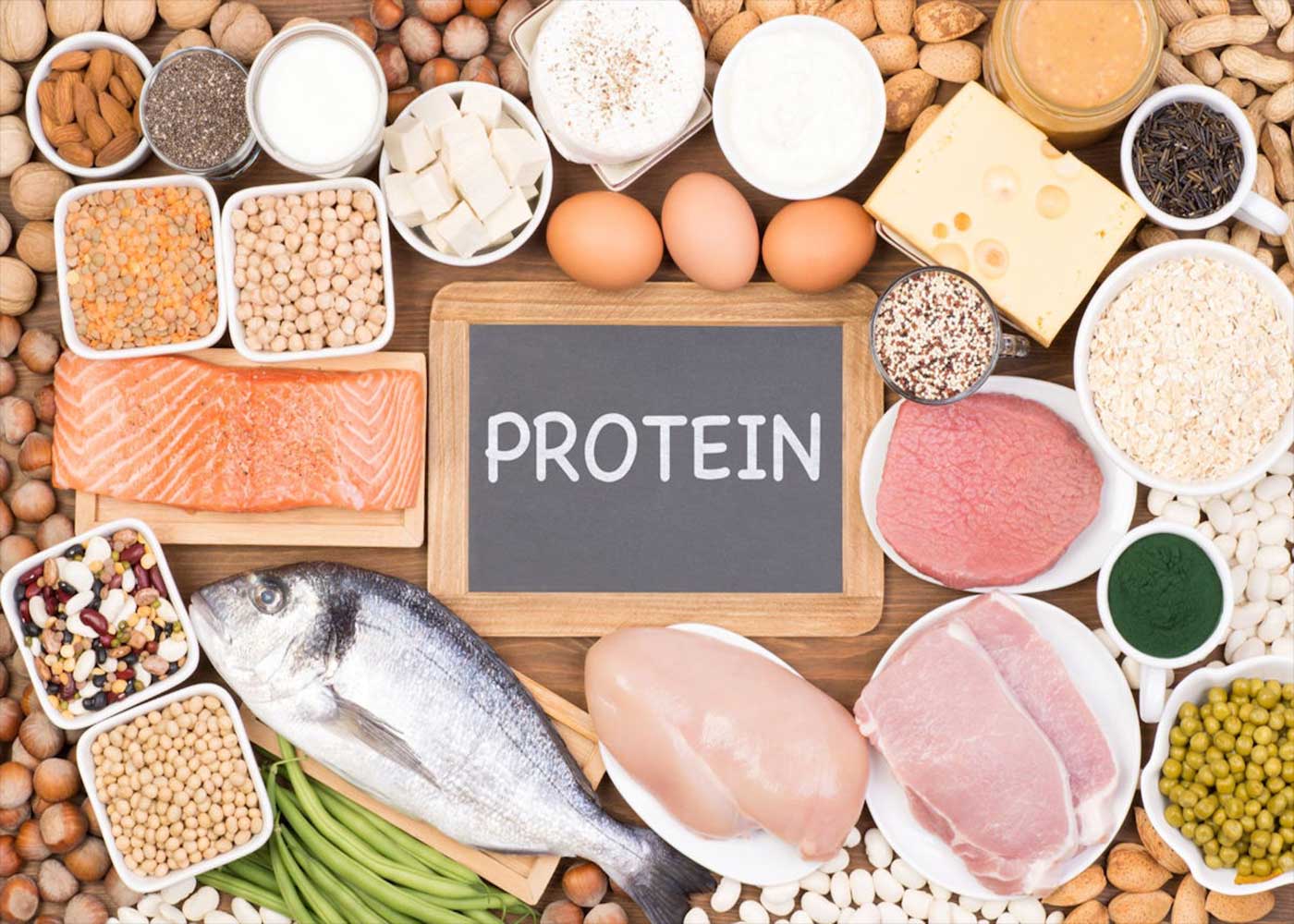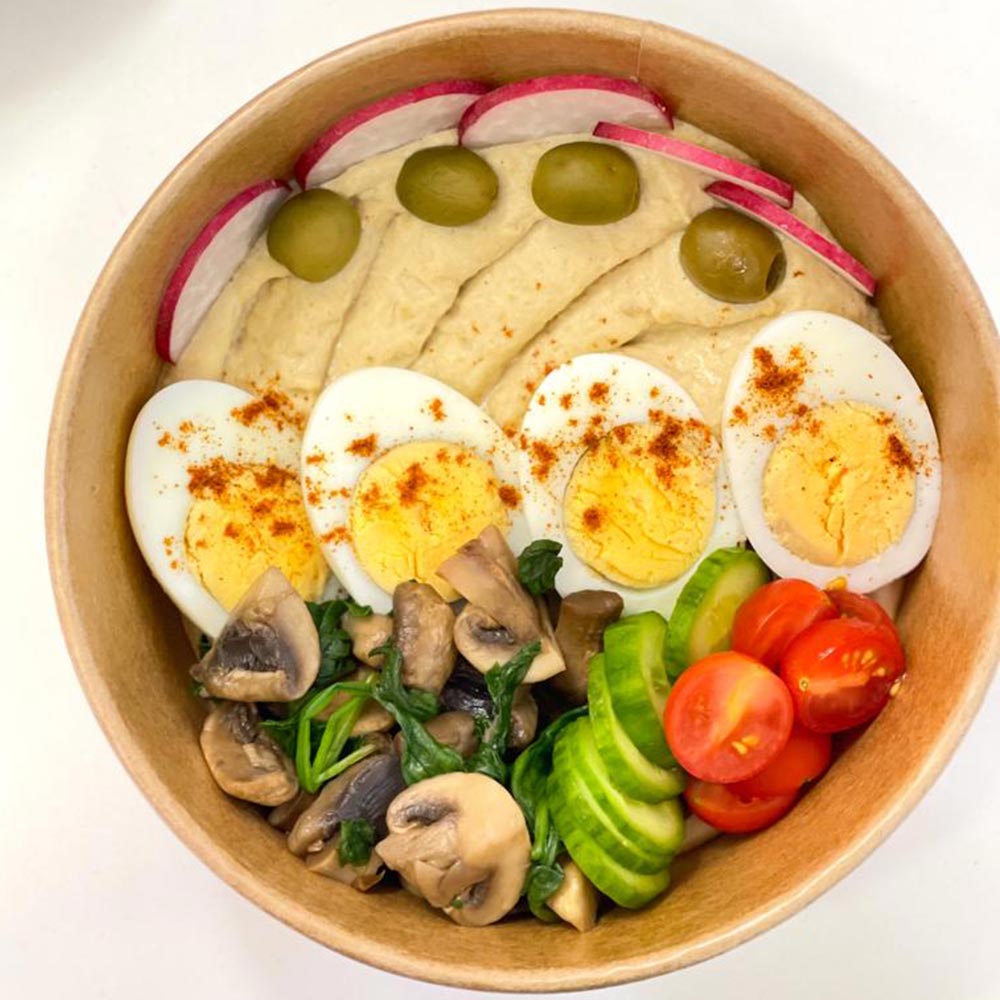Since more than ten years ago, protein has been a hot topic, whether in the context of high-protein diets, goods, or lifestyles. But beyond being a dependable food trend for health-conscious consumers, daily protein consumption is crucial because it is the basis for numerous bodily processes.
Given that there are numerous protein sources to choose from, each with a unique nutritional effect, the type of protein we eat does matter. Lean protein is a term that is relevant in this situation. You've probably heard that eating "lean protein" is beneficial for your health, but what exactly does that entail and is lean protein the healthiest option? Here are some facts concerning this significant nutrient source.
Our body’s proteins are what give our bones, cartilage, muscles, skin, and blood their structure. As a result, it is crucial that we constantly eat high-quality protein sources to enable us to grow and repair our muscle mass. Lean proteins boost brain health, increase metabolic rate, and lower blood cholesterol levels. A healthy body weight can be sustained with a maximum metabolism.
Sources of protein that are high in protein but low in fat are referred to as lean sources. Quality lean proteins are found in plants like quinoa, lentils, and chickpeas. Fish, skinless chicken, shellfish, pork loin, and eggs are all good sources of animal protein that you may regularly incorporate into your diet plan.

Why Protein Is Important
Eating the right kind and quantity of protein for you is essential for sustaining optimum health. As one of the diet's three main macronutrients, along with carbohydrates and fats, "protein, in general, is a critical nutrient in helping to support many bodily functions. This includes maintenance of cells, build up and contraction of muscle, tissue repair, and wound healing. The building blocks of our cells, the oxygen-carrying hemoglobin in our blood, organs, hair, skin, nails, and almost any other type of tissue you can think of are all formed by protein, which also gives us energy.
Depending on a number of variables, each person requires a slightly different amount of protein. While there are formulas you can use, speaking with a competent healthcare expert like a registered dietitian is the best method to get this personalized information. For additional information on how much protein to consume daily, go here.
Lean Protein: What is it?
In what ways does lean protein differ from other forms of protein, and what is it exactly? Lean protein sources have 95 mg of cholesterol or less per 3.5 ounces serving, according to the United States Department of Agriculture, and fewer than 10 grams of total fat, 4.5 grams of which are saturated fat.1 These choices effectively cover a variety of protein sources, such as lower-fat animal and plant proteins.
Compared to other, fattier protein sources, are lean protein foods healthier? It's difficult.
These nutrients are particularly significant since, traditionally, saturated fat and cholesterol have been linked to heart disease due to their detrimental effects on blood lipid levels, such as cholesterol. But the evidence presents a less clear picture. These hypotheses were supported by one meta-analysis, which discovered that over the course of two years, reducing saturated fat intake led to a decrease in cardiovascular events.
Another study found no link between eating saturated fat and heart disease. A similar lack of correlation was discovered in other research as well, such as this one from Lipids in Health and Disease and this systematic review from Nutrition, Metabolism & Cardiovascular Diseases.
Dietary cholesterol is the subject of comparable discussion. More research is being done to disprove the widely believed but unsupported theory that cholesterol is related to cardiac occurrences. However, there are others that do demonstrate a link between dietary cholesterol and heart disease (again).
These different outcomes may be the consequence of a variety of mitigating conditions, such as people changing their diets in ways that are not beneficial to heart health overall. It's also critical to recognize that the word "saturated fat" refers to a variety of saturated fatty acids, some of which will help blood lipid levels and others of which will hurt them.8 It can be challenging to determine the precise ratio of saturated fatty acids you're eating in any specific food because each one will vary depending on the growing conditions.

What Are the Advantages of Lean Proteins in Diets?
Getting adequate protein in your diet can improve your health in a variety of ways. Studies have shown that protein can help with a range of objectives, such as weight loss, muscular growth, heart health improvement, and energy boosting. If your goal is to keep a healthy diet choice, then it is absolutely vital that you ensure that you have sufficient portions of lean protein in your diet. It should make up a good percentage of your diet if you want to stay healthy. Some of its benefits include:
1. Energy for Buildings Muscle
As you may know already; the body's primary building blocks are proteins. The bones, muscles, skin, and blood are made up of it. They are needed in your diet to help your body rebuild and repair muscles after any physical exhaustion. In fact, athletes are advised by the American Dietetic Association to consume 0.5 to 0.8 grams of protein for every pound of body weight.
Maintaining lean muscle is essential for your general health, regardless of your age or strength goals. When paired with exercise, lean protein is a great way to maintain the lean muscle you have acquired.
2. Weight Loss Support
Foods that are protein-rich often help one to keep hunger at bay for a longer period, which inevitably helps you to lose weight easily as you end up consuming lesser calories on a daily basis. A 2008 study in the "American Journal of Clinical Nutrition" showed that protein encourages satiety and may increase metabolism. Lean muscle mass is necessary for a good weight loss program, and eating enough protein will help the body keep that muscle mass.

3. Lessening the Risk of Cardiovascular Disease.
The percentage of death by heart disease remains the highest in the US. However, making dietary changes can significantly lower your risk of cardiovascular disease.
Adults who consume more lean protein have a lower chance of developing heart disease.
Leaner protein sources can easily be substituted for high-fat proteins to improve your heart health.
4. Immune System Support.
Many lean proteins contain significant amounts of zinc. A mineral called zinc is well known for defending the human immune system. There are foods that naturally contain zinc, as well as nutritional supplements and immune boosters, so why not do that instead?
Zinc levels in yogurt, skinless chicken, and lean pork are all healthy amounts.

5. Provides Vitamin B
Vitamin B is also found in lean meats. Vitamin B helps maintain healthy cell metabolism, promotes brain function, and regulates energy levels. It can also promote healthy digestion and protect your bones.
Dairy, eggs, and seafood are all lean proteins that are also rich in vitamin B.
6. Construct and Repair
Our bones, muscles, cartilage, skin, and blood are all made of protein. If you want these structures in your body to be able to mend effectively, you must feed them with high-quality protein sources.
You may have heard about athletes that consume a lot of lean protein in their meals. They continually work to replace what is lost during exercise, which is one of the reasons for this specific diet. Compared to other macronutrients like carbs and fats, protein aids in muscle repair and recovery more quickly.
7. Boost Metabolic Rate
You are well aware that lean protein can aid in weight loss by increasing lean muscle mass and providing fewer calories per meal. However, did you know that consuming lean protein can also speed up your metabolism?
Food becomes energy through the process of metabolism. When your metabolism is high, your body uses calories for energy more effectively. If your metabolism is slower than average, it will take longer for your body to convert a given amount of food into energy.
Lean proteins provide your body with the vitamins and minerals it needs to maintain an effective metabolism. You might be able to maintain or decrease weight as a result of this. It might also be related to improved sleeping patterns.
8. Longevity
You can live a healthy life by eating lean protein. However, it can also lengthen your life! According to research, a diet high in lean proteins is consumed by some of the world's longest-living individuals.
Fish, nuts, lentils, and other high-protein diets have been linked to a longer lifespan free of chronic illness. A few little dietary adjustments could lengthen your life by years!
9. Bring Blood Pressure Down
There are 68 million Americans who suffer from hypertension, or high blood pressure. Other risky illnesses like heart attack, stroke, and kidney disease are connected to high blood pressure.
Lean protein can reduce blood pressure and raise LDL cholesterol, the beneficial kind of cholesterol, in your body. You can reduce your risk of high blood pressure and all the hazards that go along with it by adding a few servings of lean protein or switching from a higher-fat protein to a low-fat protein.
10. Protein helps you feel fuller for longer by reducing cravings. So, if you struggle with feeling hungry all the time, eating more protein may be able to assist.
Try lean protein instead of ingesting calories from fats and carbohydrates. Protein keeps you full since it digests more slowly in your body. You might be able to stop yourself from reaching for unhealthy snacks if you start your day with a balanced serving of lean protein.

Consider Lean Protein
Fish, skinless poultry, dairy products, beans, and lean beef are all great sources of protein. You may make a variety of delectable meals using lean protein as the main ingredient.
Here are a few of the top sources of lean protein you may include in your daily diet.
Sources of a Healthy Lean Protein
01: White meat poultry without skin:
The breasts, or white meat, are always the leanest component of any animal, be it chicken, turkey, or another variety. When it comes to leanness, choose the skinless varieties because the skin contains a lot of saturated fat. Even if the skin is removed before eating and the breast is cooked with the skin on, some saturated fat will still be consumed since the fat seeps into the flesh during cooking.
2: Lean Pork Chops and tenderloin:
The greatest lean cuts of pork are the tenderloin and a chop with little to no apparent fat. If you want lean protein, stay away from pork belly (also known as bacon) and pork shoulder because they are among the fattiest pieces of meat available in all animal-based goods.
3. White Fish:
Cod, sea bass, halibut, and trout are all excellent choices for lean proteins because they are flaky white fish. Additionally, their mild flavor and delicate texture go well with a wide range of international foods and regional cuisines, including Middle Eastern, Asian, and Mexican.
04: Shellfish:
For those who enjoy clams, shrimp, and lobster, there is good news: They are all low in total fat (including saturated fat and cholesterol), making them excellent sources of lean protein. They also include naturally occurring iodine, a nutrient that supports healthy thyroid function.

5. Fatty Fish:
Contrary to popular belief, fatty fish like salmon, tuna, anchovies, and sardines all contain lean protein. This is due to the fact that they largely contain unsaturated fat, which has been linked to better heart health, especially the omega-3 fatty acids, of which all four are exceptionally rich sources.
6. Eggs, particularly egg whites:
Whole eggs are a highly healthy food choice for you. When looking for lean protein, egg whites are a great option because they are essentially pure, fat-free sources of protein. Technically speaking, egg yolks are a prime example of food sources of cholesterol; yet, the vitamin D found in eggs—which is notoriously difficult to come by in the diet—is totally concentrated in the yolk.
Given this delicate juggling act, consuming whole eggs occasionally is a fantastic choice. Making a scramble or an omelet using two or three egg whites and one whole egg is one method to combine these two health goals. Another option is to limit your consumption of whole eggs to a few times per week (as opposed to, say, every day).
07. Low-Fat Dairy and Yogurt:
Cottage cheese, yogurt, and milk are all excellent sources of lean protein that are low in fat. Yogurt has the extra benefit of probiotics because it is a fermented food, which will assist to increase the beneficial gut bacteria in your microbiome. Better digestion, immunity, brain health, and a host of other benefits follow from healthy gut flora.
08. Tempeh and tofu:
Lean protein is often associated with animal-based diets, but plant-based choices also satisfy this requirement and offer additional health advantages. Although there are always some exceptions, in general, saturated fat and cholesterol are only found in animal-based sources. Tofu and tempeh made from soy, however, provide fiber and plant components in addition to being complete protein sources (like all animal proteins, but not all plant proteins).
09. Legumes:
Legumes, which include beans, peas, and lentils, are fantastic plant-based sources of lean protein that also provide fiber, plant-based components, and other vitamins and minerals. Is anyone for Dal?
10. Quinoa:
Remember that several types of grains are excellent providers of lean protein. Quinoa has a very high protein content and very little fat. Additionally, it has all nine of the essential amino acids, which can be difficult to obtain in plant-based protein choices. This makes it a complete protein. Choose quinoa as your preferred grain (or add some quinoa to rice!) to add more protein and heartiness to a grain bowl or side dish.

The conclusion:
So what should we learn from this? It is important to emphasize protein alternatives that are as lean as feasible whenever it is available, despite some contradictory information that suggests a negative correlation between heart health and both saturated fat and dietary cholesterol.
According to Batajoo, many lean protein sources are not only low in saturated fat and cholesterol but also "great sources of iron, zinc, and B12, with other sources offering omega-3 fatty acids, plant chemicals that are beneficial, as well as minerals, vitamins, and fiber.
Lean proteins also have a fantastic flavor and assist your health in a variety of other ways. Simply increasing your daily intake of lean protein by a few servings will help you gain muscle, burn fat, and improve your mood.
What are you still holding out for? Test it out by letting Energy Meal Plans Dubai help you!






























